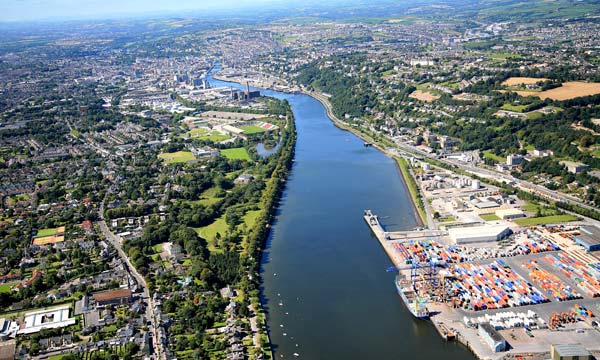Sotiris Raptis, Senior Policy Advisor for Environment & Safety, EcoPorts Coordinator, cites how EcoPorts network, initiated in 1997 in the year the Kyoto Protocol was signed, has become a successful initiative for ports to raise awareness, exchange information and promote better environmental management. After 20 years, this initiative has transformed into a solid network of around 100 European ports within ESPO.
EcoPorts has become the main environmental initiative of the European port sector to address these environmental challenges. It has provided a system developed by ports, for ports, specifically designed to put ESPO’s policies into practice by encouraging the free exchange of experience on environmental issues among its members. Completing the Self Diagnosis Method (SDM) is the “passport” to EcoPorts. By filling in a checklist of more than 250 questions, a port is able to assess its environmental management programme against the benchmark based on EcoPorts members’ performance and international standards. Each participating port can see its performance and assess improvement in a fully confidential way since individual data is not published. At the same time, ESPO is able to provide aggregated data, an at-a-glance summary of the environmental management performance of its member ports.
The second EcoPorts’ tool, the Port Environmental Review System (PERS), has firmly established its reputation as the only port sector specific environmental management standard. Although there is plenty of guidance available on general environmental management, the often highly specialised nature of the environmental challenges in the port area that port authorities face, means that a “custom-made” approach is absolutely vital. While incorporating the main generic requirements of recognised environmental management standards, PERS, which is independently certified by Lloyd’s Register, is adapted to deliver effective port environmental management. PERS is really the flagship product of EcoPorts with 25 ports being currently PERS certified.
The overarching aim of EcoPorts is to increase awareness about environmental challenges, deliver compliance with legislation and to demonstrate a high standard of environmental management. Even if the EcoPorts members must be seen as the driving force of the network, it is clear that the added value of EcoPorts reaches out far beyond the network.
EcoPorts helps European ports be at the frontline taking initiatives to protect the environment, improve public health and address the challenges of climate change. Air pollution and energy efficiency are already ports’ top two environmental priorities and in that sense EcoPorts’ services have significantly contributed towards the sustainable management and development of port operations.
But we are not celebrating this 20th anniversary just by looking at the past. We want to grasp this opportunity and refresh the services, update the tools in view of the new environmental challenges and further expand the network. Some preparatory work has already been done after the update of both the Self Diagnosis Method (SDM) and the Port Environmental Review system (PERS). The new SDM now includes also indicators on Shore Power Supply (OPS), LNG and Green Charging. PERS was updated in order to reflect the changes made to ISO 1400:2015. The update of these two well established Ecoports tools was essential for Ecoports to be continuing as the driver towards excellence in port environmental management and sustainability. Both SDM and PERS are now listed as a source of Good International Industry Practices by the World Bank. The EIB and the EBRD are also considering these tools as a reference in their assessment of projects.
Ports, coastal cities and their local communities are amongst the most vulnerable to extreme weather conditions resulting from global warming. At the same time, air quality is a top priority with 90% of European ports being in close proximity to urban areas. Over the course of the last 14 months, we welcomed two tremendous developments in environmental protection; the adoption of the Paris Agreement and the introduction of the global 0.5% sulphur cap on marine fuels in 2020. Developed and developing countries agreed to take immediate action to address the global threat of climate change and keep the increase of global temperature below two degrees, while IMO’s new measure is expected to bring enormous environmental and public health benefits.
We are celebrating 20 years of EcoPorts aiming to strengthen the network and assist more European ports in being at the frontline taking initiatives to protect the environment, improve public health and address the challenges of climate change. Green your port, Join EcoPorts!
Written by Sotiris Raptis, Senior Policy Advisor for Environment & Safety, EcoPorts Coordinator, ESPO
The views presented hereabove are only those of the author and not necessarily those of GREEN4SEA and are for information sharing and discussion purposes only.






























































